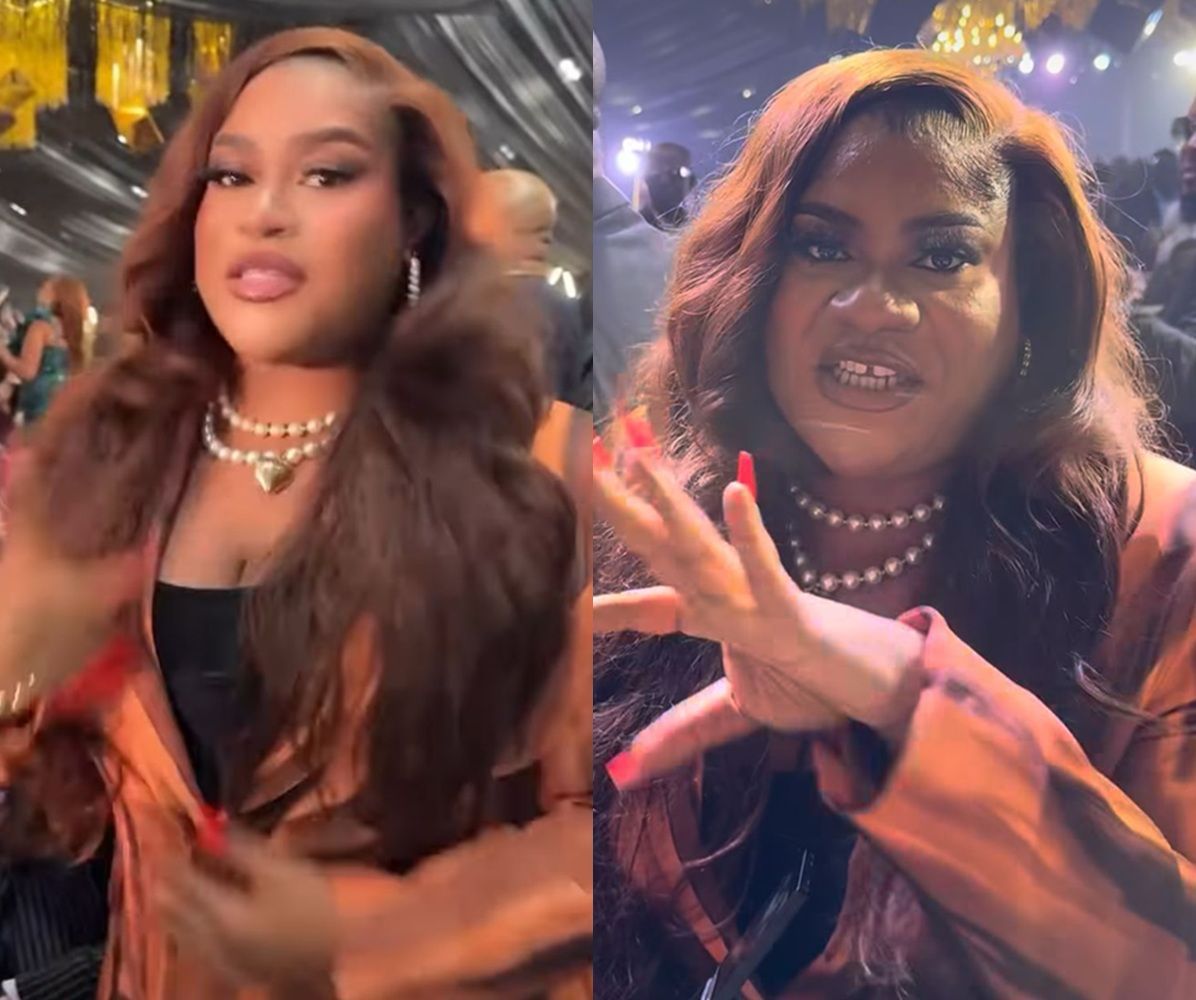
Nkechi Blessing Claps Back at Critics: “I Will Never Stop Using My Filters and Edits"

In today’s world of constant social media scrutiny, celebrities often face a barrage of opinions regarding their looks, lifestyles, and choices. Actress Nkechi Blessing, known for her candid presence on social media, is no stranger to such criticism. However, recently, she found herself at the center of a heated discussion after attending the lavish birthday celebration of billionaire businessman Obi Cubana. The spotlight shifted to her appearance, and not for the right reasons, when some critics took to social media to point out the contrast between her typically edited and filtered posts and her unfiltered look at the event.
Nkechi Blessing has built a reputation for being unapologetically herself, using social media as a platform to share her personal life, opinions, and career updates. But after the viral images from Obi Cubana’s birthday party, it became clear that not everyone appreciated the natural version of the actress that appeared in those pictures. Fans and detractors alike took to the internet, commenting on her "unfiltered" look, with some even questioning her authenticity and implying that she might be hiding behind filters for a reason.
In response to this criticism, the actress wasted no time in defending herself. In a passionate statement on her social media pages, Nkechi Blessing made it abundantly clear that she would not be cowed by negative feedback. "I will never stop using my filters and edits," she declared, emphasizing that how she presents herself online is her own personal choice and does not need to meet anyone's expectations but her own. The actress further clarified that how others see her on other people’s pages is none of her business, asserting her right to control her own image.
Her statement has since ignited further conversations about the pressures that public figures, particularly women, face when it comes to their physical appearance. In an era where social media dictates trends, celebrities are often caught in a double-edged sword: they are both idolized and vilified based on the way they look, dress, or behave. For many, the expectation is clear: an image must be perfect. It’s this very pressure that forces many to turn to filters and editing apps, not just for enhancing their beauty but for navigating the harsh judgment they face online.
Nkechi Blessing’s response highlights a growing movement where individuals—especially women—are challenging the standards set by society and the beauty industry. Rather than being shamed for embracing filters or editing their photos, the actress is owning her choices, refusing to be pressured into conforming to others' ideals of beauty. “I like to look how I like to look, and if you can’t accept it, that’s your problem,” she said in one of her posts, making her stance even more emphatic.
Her boldness resonates with many who feel trapped in the illusion of flawless beauty that often permeates social media. "We are all human, and there's no harm in wanting to look good and confident," one fan commented in support of her. "If filters make her feel better about herself, so be it. It’s nobody's business how she chooses to look." The sentiment echoes a broader conversation around self-love, body positivity, and the need to create spaces where individuals, particularly women, are not forced to meet unrealistic beauty standards.
However, the controversy also raises questions about the culture of perfectionism and how it affects mental health, particularly for public figures. While filters and edits have become the norm on social media, there’s a growing concern about the long-term psychological impact of constantly modifying one’s appearance. Experts suggest that while some filters can boost self-esteem, an over-reliance on them can lead to body dysmorphia, a condition where people become obsessed with perceived flaws and imperfections. Nkechi Blessing's candid response could, in some ways, be seen as a pushback against this toxic cycle of constant image-editing and unattainable beauty standards.
But perhaps more importantly, her unapologetic attitude offers a chance for the wider community to reflect on how we view celebrities, especially in a space like social media. Is it fair to expect them to constantly meet our expectations of perfection? Should their value as entertainers or individuals be tied only to how they look or the version of themselves they choose to display? Nkechi Blessing’s words seem to suggest that the answer to these questions should be a resounding "no." Celebrities are humans too, and they are allowed to be multifaceted, showing different sides of themselves without facing judgment or harsh critique for it.
Despite the online criticisms, Nkechi Blessing's response has largely been met with support from fans who admire her confidence and resilience. She continues to enjoy a strong fanbase, not only because of her acting skills but because of her authentic personality that shines through her online presence. Whether she’s sharing moments from her personal life or discussing controversial issues, the actress has earned a reputation for keeping it real, something that her fans respect and admire.
In many ways, the actress has become a symbol of empowerment for women in particular, showing that it’s okay to take control of your own narrative. Whether it's through the use of filters or embracing natural beauty, she is carving out a space where individuals can exist authentically, without feeling the need to apologize for their choices.
As social media continues to evolve and influence the way we perceive beauty, it’s refreshing to see celebrities like Nkechi Blessing who remain true to themselves, despite the criticisms they face. In her case, the filtered and unfiltered versions of herself coexist, and she's not backing down from her right to express her truth in whichever way feels right to her. Ultimately, she serves as a reminder that how we present ourselves is our own business—and no one else’s.


